Are you wondering whether practicing Pilates during pregnancy is safe? In this article, we get a detailed study of how effective this exercise method is, along with its multiple benefits. Before we delve into that, here's what we should know when it comes to the dos and don'ts of Pilates during pregnancy to ensure that it’s practiced safely.
Here are some important tips and preventive methods for safely practicing reformer Pilates during pregnancy to enjoy the benefits of this fitness technique and be safe as well.
Benefits of Reformer Pilates During Pregnancy
A form of exercise that uses a machine instead of the traditional mat for a more intense and dynamic workout session is known as reformer pilates. The motive of this form of fitness is that it focuses on strengthening, and toning the muscles, improves flexibility, and promotes overall fitness.
Under the proper guidance of an experienced instructor, reformer pilates is a safe and beneficial exercise during pregnancy.
The ability to strengthen the core muscles is one of the main benefits of Pilates. As the baby grows inside the womb the abdominal muscles and pelvic floor often have the tendency to become weak and stretched.
A regular reformer pilates session will engage and strengthen these muscles and provide great support for the changing body and the growing belly. The set of guided exercises helps alleviate backache and sense of discomfort.
Yet another benefit of pilates is the fixation of posture. With the exponential change in the body during pregnancy your posture is massively affected which leads to issues such as lower back pain and alignment problems.
Posture is corrected by targeting the muscles that are in constant strain and pressure and the right stretches and workouts help to support proper alignment. Discomfort is reduced and better balance is developed for stability and strength.
Not just that, along with countless benefits Reformer Pilates helps to improve circulation and reduce swelling and other common issues during pregnancy. The controlled and calming effect of Pilates helps to restore blood flow and reduce fluid retention in the legs and ankles.
Why is it Important to Consult a Healthcare Provider?
Pregnancy is a sensitive period and before starting any program or fitness regime it is always advised to consult with a healthcare provider to receive their approval and guidance. Your Healthcare provider plays a very important role during and post pregnancy and consulting them for every step for the well-being of you and your baby is a crucial part of your fitness journey.
Once that is done a personalized regime tailored to your body's requirements is made.
Here are some safety measures to be taken into consideration:
- Observing The Status of Your Health: it is important to let your healthcare provider know about your state of health and whether there are any health concerns or complications. They will then assess the condition and guide you accordingly with modifications to your regime.
- Workout Intensity: The intensity of the workout is always regulated and advised to be in moderation. This is to ensure that the baby and mother are safe and also to help the expecting mother to have an impactful workout session.
- Addressing Concerns: Your healthcare provider is the right person to discuss any concerns or doubts regarding practicing reformer Pilates. They help provide reassurance, answer your doubtful queries, and address your fears and anxiety that you may have.
What Are The Modifications To Be Made for a Safe Practice?
To start with, avoid exercises that require you to lie flat on your back for a very long time. This position can risk the flow of blood to the uterus and can cause harm to the baby.
Prop yourself up with back support and pillows to maintain a more comfortable and safe posture.
It is also necessary to keep in mind the range of motion. With more time into the pregnancy, ligaments are more relaxed and tender which can increase the risk of injury.
Focus on stable and moderate movements and overexertion and overstretching must be avoided at all costs.
High-intensity workouts that involve twisting and putting pressure on your stomach have to be refrained from being practiced.
It is important to pay attention to the core without putting extra pressure on your belly.
Most importantly, consider having additional support for your back and props that help you practice pilates. pillows, pregnancy cushions, and pilates pregnancy wedges are among the support props that can be used during your workout.
It is always essential to listen to your body and make decisions according to the comfort of your body.
Be Cautious of What Your Body is Trying To Tell You.
When you realize that your body is responding unusually and you are in discomfort or pain. Trust your instincts and visit a doctor immediately.
Your body goes through a series of changes and it is important to listen to it.
-
Acute Discomfort and Pain - A sense of pain can be because of strain or an injury that has to be addressed promptly.It is crucial to promptly consult with your healthcare provider when you undergo such pain or discomfort.
-
Breathing Difficulty: With the decreasing space for lungs to expand as the baby grows inside the womb, you may often find yourself gasping for breath during the 2nd and 3rd trimester of pregnancy therefore it is important to consult a medical professional when you have shortness of breath.
-
Exhaustion - If you find yourself becoming tired and exhausted despite taking adequate amounts of rest then it calls for a consultation with your healthcare provider or doctor.
- Stinging sensation and contractions - As the fetus grows your body goes through changes drastically, when you find yourself feeling the things you have not sensed before like sudden movement of the fetus, sharp stinging contractions or even unusual or mild discomfort it is crucial to seek medical help.
5: Fainting Tendency or Giddy- This can happen due to low blood pressure, fluctuation in health condition and dehydration during pregnancy. It is important to take small time-off mid workout sessions and hydrate yourself. Consult your healthcare professional in case of further discomfort.
Breathing Techniques to Know During Reformer Pilates Session:
For a comfortable and safe pregnancy, it is important to learn a few breathing techniques. This not only calms you down but relaxes you and supplies the necessary oxygen to your muscles and stabilizes your movements.
5 important breathing techniques to remember:
-
Diaphragmatic Breathing: When you allow your abdomen to expand when you inhale and contract while you exhale it is known as Diaphragmatic Breathing.
- Rib expansion Breathing: Focusing on expanding the ribcage as you inhale allowing the lungs to fully expand is known as Rib Expansion Breathing.
This corrects posture and encourages mobility of ribs.
- Exhalation with effort: While exerting effort is done during Pilates exercise it is important to make sure you exhale forcefully. This builds strength in your core muscles and supports your spine.
-
Coordinated Breathing With Movement: It is essential to sink your breath as you move. This is one of the most important ways of exerting stress in Pilates. Inhale while you are in the preparatory phase and exhale while you are in the exertion phase.
- Relaxation Breathing: Post a challenging workout session make sure to restore calmness to your body with Relaxation Breathing.
FAQ’S
Is pregnancy the right time to start reformer pilates if I have never done it before?
It is important to consult your doctor and healthcare provider first if it is the first time you are trying Reformer Pilates. The doctor will assess your health and situation and advise you on whether it's safe to venture into something new during pregnancy. Tests that check whether your body is fine with the changes introduced to your body are taken and assurance of no risk posed needs to be given by your healthcare professional.
What are the specific exercises or movements that should be avoided during your pregnancy?
Deep twisting exercises, fast motions, sudden jerks, and any exercise that puts pressure on the abdomen have to be avoided as they can do more harm than good. Overall strength and flexibility promoting exercises are good enough to be practiced during pregnancy. Consult your healthcare provider, Pilates instructor, and doctor on safe exercises during pregnancy.
Is Reformer Pilates Safe During all stages of your pregnancy?
It is a safe form of exercise, provided you are aware of the changes in your body and make the modifications required by your body. Reformer pilates can be a great core strengthening workout that improves flexibility which is crucial during pregnancy.
However, consult your healthcare provider, Pilates instructor, and doctor on safe exercises during pregnancy.
Practicing Reformer Pilates during pregnancy has several advantages with proper guidance and with the consultation of a healthcare provider. With time make the necessary alterations and modifications that will help you with a comfortable and safe pregnancy. Take cues sent by your body and ensure safe practice during your fitness regime. Always remember to focus on the important breathing techniques and postnatal care when you are getting back to reformer pilates. With this guide, you can enjoy the benefits of this fitness technique and have a safe and comfortable pregnancy.
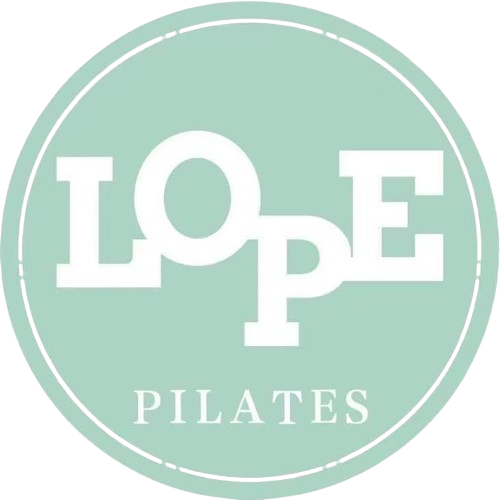
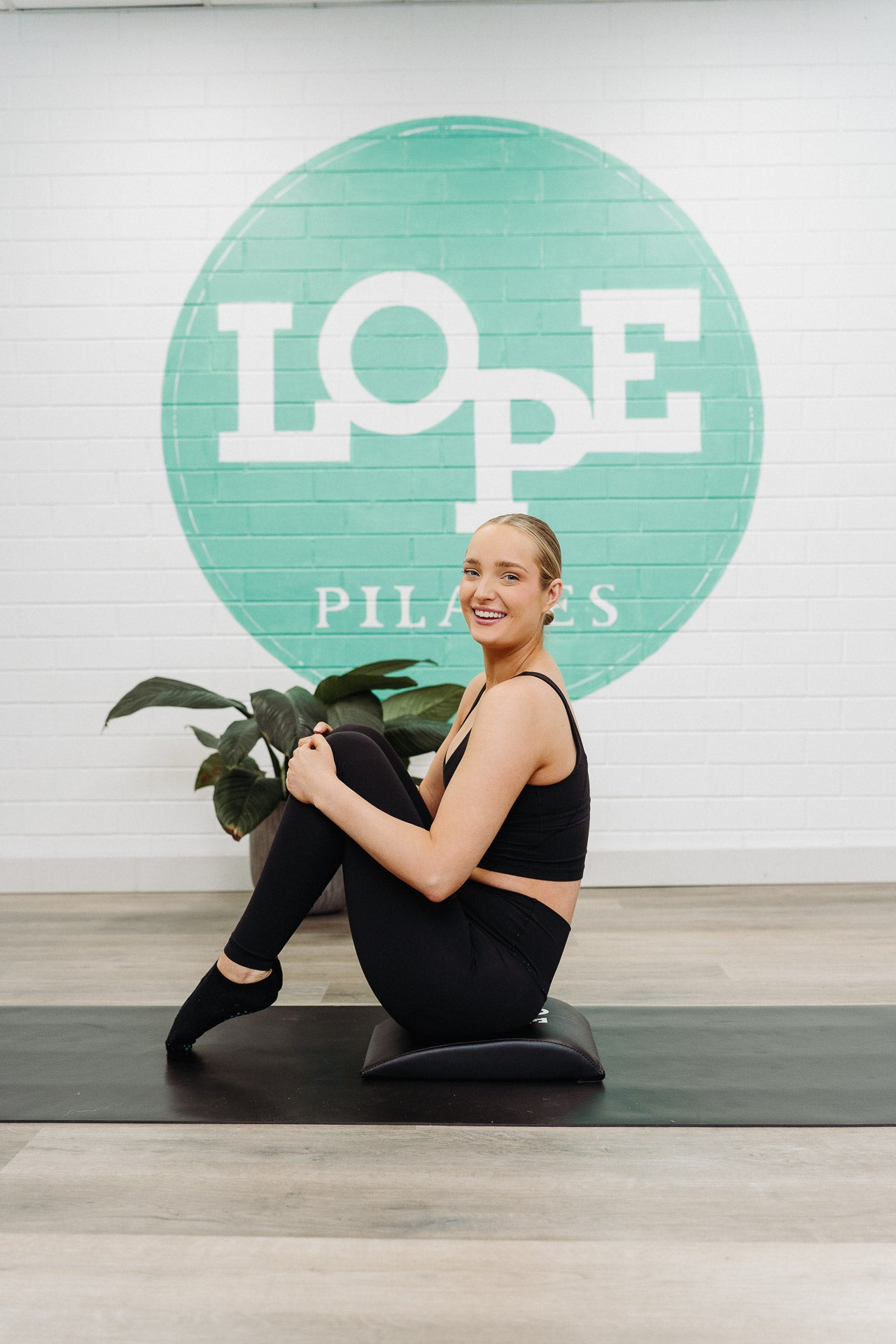
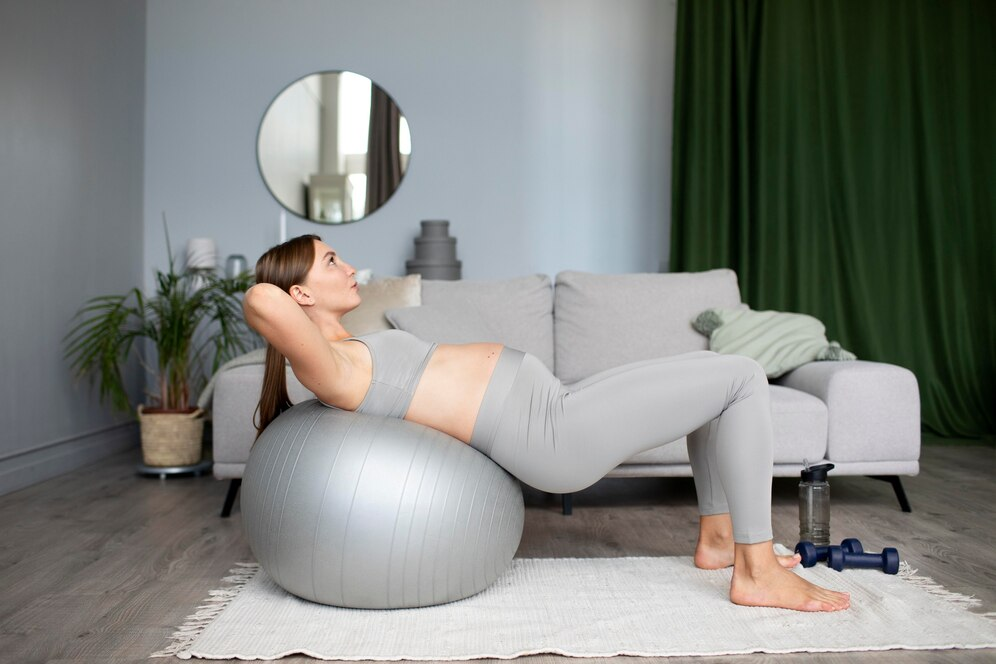
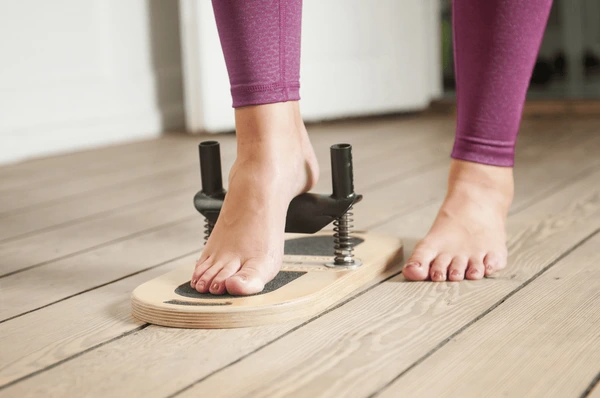
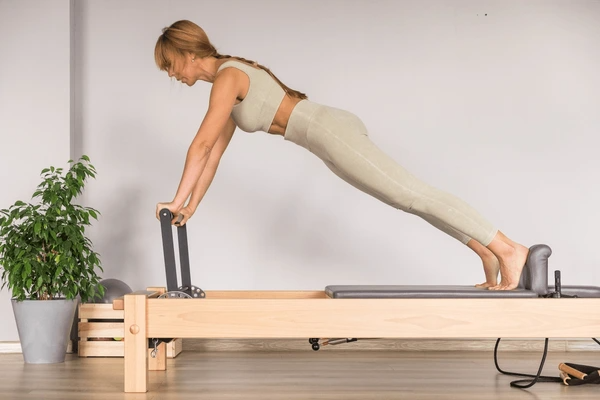
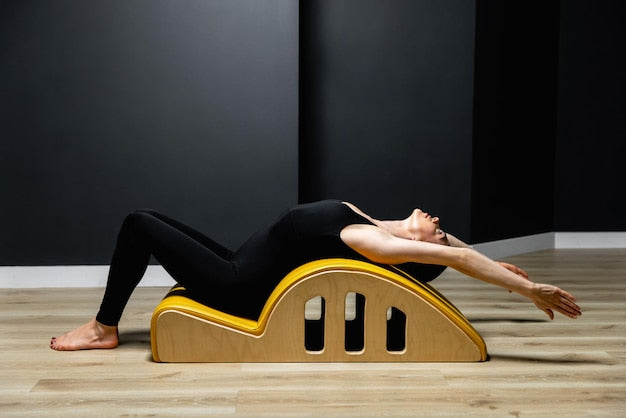
Share:
A Comprehensive Guide to Alleviating Lower Back Pain using Pilates
Enhancing Strength, Flexibility, and Posture With Pilates Equipment Australia